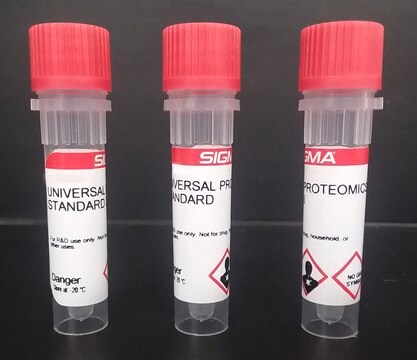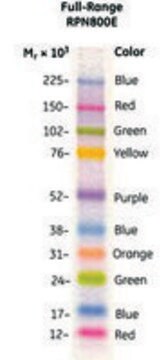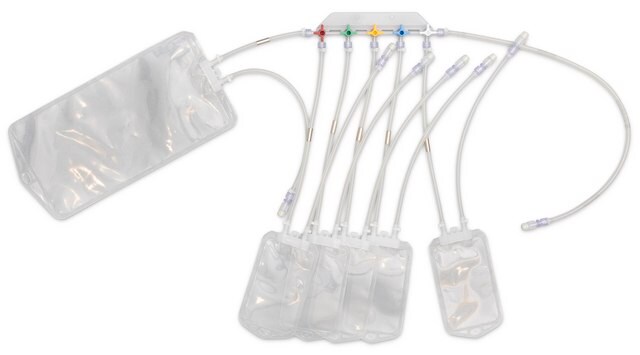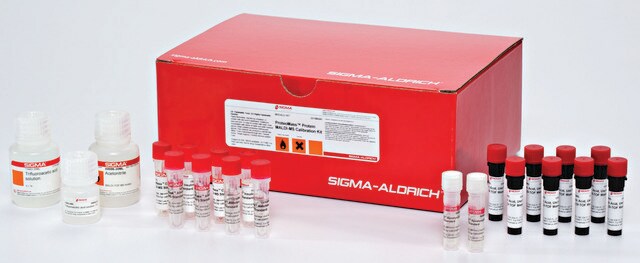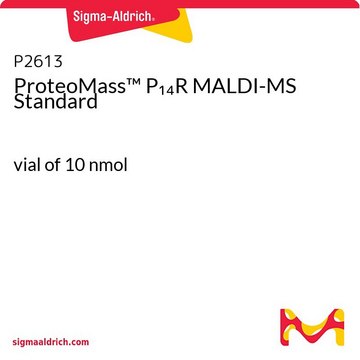Key Documents
UPS2
Proteomics Dynamic Range Standard Set
Protein Mass Spectrometry Calibration Standard
Synonim(y):
Dynamic Range Standards, Proteomics Standard Set
About This Item
Polecane produkty
pochodzenie biologiczne
human
Postać
ready-to-use solution
jakość
Protein Mass Spectrometry Calibration Standard
stężenie
10.6 μg/ampule protein
metody
mass spectrometry (MS): suitable
Warunki transportu
wet ice
temp. przechowywania
−20°C
Powiązane kategorie
Opis ogólny
Zastosowanie
Proteomics Dynamic Range Standard Set has been used for the quantification of dynamic range universal protein standard on Orbitrap Analyzer using all ion fragmentation. It has been used as a standard for intensity-based absolute quantification of proteins (iBAQ) in LC-MS (liquid chromatography-mass spectrometry)/MS analysis.
Elementy zestawu są też dostępne oddzielnie
- T6567Trypsin from porcine pancreas, Proteomics Grade, BioReagent, Dimethylated 20 μgKarta charakterystyki
produkt powiązany
Hasło ostrzegawcze
Danger
Zwroty wskazujące rodzaj zagrożenia
Zwroty wskazujące środki ostrożności
Klasyfikacja zagrożeń
Eye Dam. 1 - Repr. 1B - Resp. Sens. 1 - Skin Irrit. 2 - STOT SE 3
Organy docelowe
Respiratory system
Kod klasy składowania
6.1C - Combustible acute toxic Cat.3 / toxic compounds or compounds which causing chronic effects
Temperatura zapłonu (°F)
Not applicable
Temperatura zapłonu (°C)
Not applicable
Certyfikaty analizy (CoA)
Poszukaj Certyfikaty analizy (CoA), wpisując numer partii/serii produktów. Numery serii i partii można znaleźć na etykiecie produktu po słowach „seria” lub „partia”.
Masz już ten produkt?
Dokumenty związane z niedawno zakupionymi produktami zostały zamieszczone w Bibliotece dokumentów.
Klienci oglądali również te produkty
Powiązane treści
Standardize Your Research. We offer both the Universal Proteomics Standard and the Proteomics Dynamic range Standard as complex, well-defined, well characterized reference standards for mass spectrometry.
Nasz zespół naukowców ma doświadczenie we wszystkich obszarach badań, w tym w naukach przyrodniczych, materiałoznawstwie, syntezie chemicznej, chromatografii, analityce i wielu innych dziedzinach.
Skontaktuj się z zespołem ds. pomocy technicznej